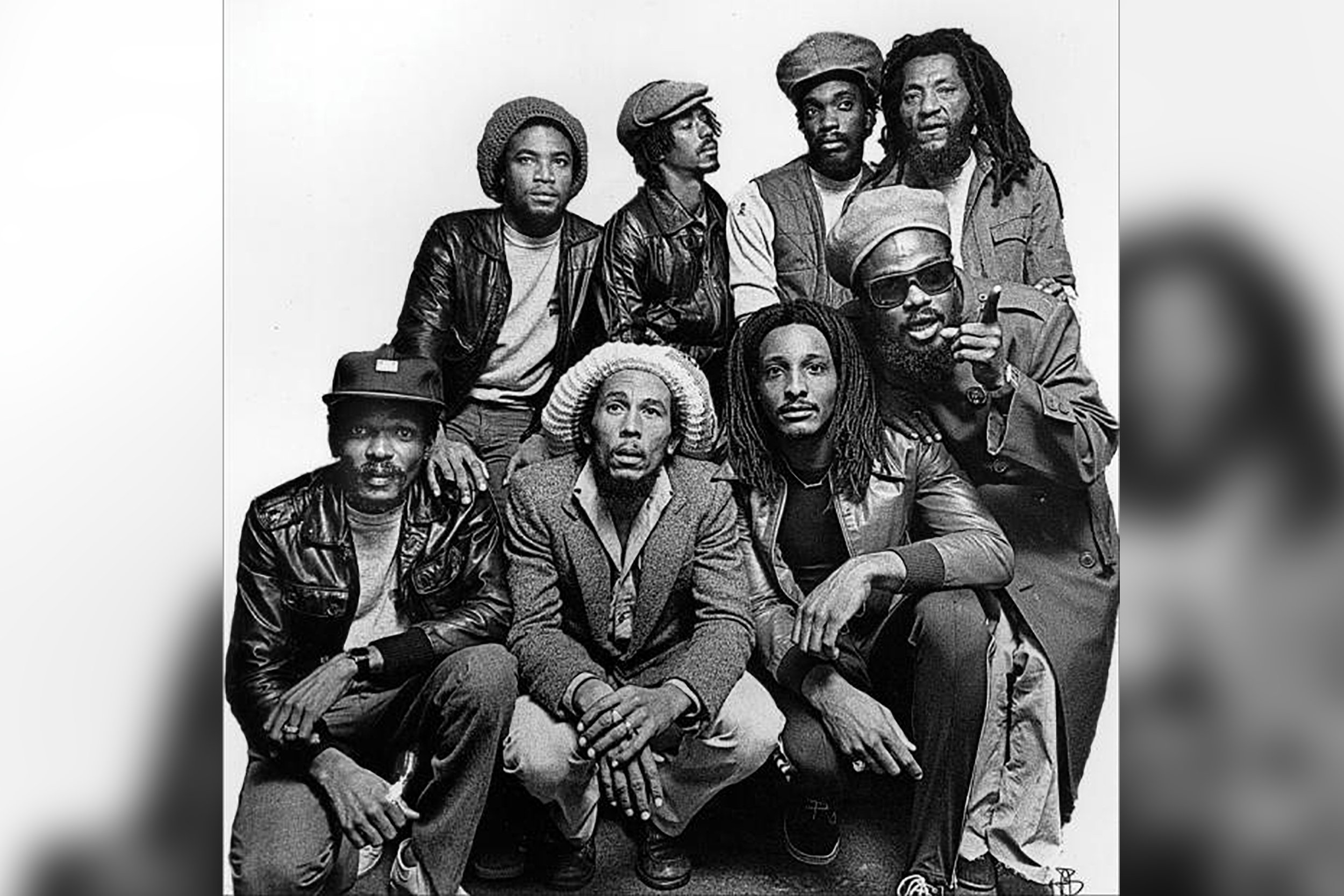
Jamaica gained independence from the U.K. in August 1962. The period of turmoil and growth that followed was accompanied by an exciting new soundtrack of ska and reggae provided by Trenchtown's music scene that included a talented, young guitarist named Bob Marley. He would go on to develop a huge following with his group Bob Marley and the Wailers, and later as a solo artist. Seventy years after his birth, the legacy of Bob Marley and the Wailers lives on in the popularity of the music and its message. This article is excerpted from a Newsweek special edition commemorating Bob Marley's life and work, which meant so much to so many.
As the early '60s saw Jamaica's ska trend cross the Atlantic and find a home among the clubs and shebeens of the West Indian diaspora, one record would have stood out to attentive ears. Simmer Down was released amid the suppurating tension and violence of Kingston in the post-independence era. Having finally had the Union Jack lowered and placed firmly in the past, Jamaica was fighting over its future, often with deadly consequences. A call for Jamaica's youth to throw down its arms and stop the violence, Simmer Down was also released into a ska scene that was increasingly being defined in the public eye by its relationship to Rastafarian ideals. Ska musicians like Prince Buster and Laurel Aitken had associated ska with the religious movement, which holds that Emperor Haile Selassie I of Ethiopia was the second coming of Christ, even before independence.
As independence loomed in traditional and Christian Jamaica, the ideas of the dreaded Rastaman were blasphemous. But in Trenchtown they were avant-garde, and ska musicians benefited from its rebellious image. Jamaica was coming to the forefront of Caribbean affairs, and its music scene was booming in proportion. By 1962 two welders and a Wailer—technically still a Livingston—were about to arrive on the scene.
Bob and Bunny had continued to experiment musically and write songs together as Bob found employment as a welder in Kingston. One day, a scalding hot piece of metal flew into a daydreaming Bob's right eye, unprotected by goggles, and the pain and trauma were so great that Bob swore never to return to the welding shed. He informed his mother that with a new friend and fellow welder, Peter Tosh, he and Bunny would be musicians full-time.
Enter Joe Higgs, formerly of the Kingston duo Higgs and Wilson, who began tutoring local musicians for free at his home. Bob's distinct, soft yet powerful voice hypnotized Higgs as it would later do to legions of fans, and the veteran gave Bob special assistance. Meanwhile, Peter convinced the minister of a local parish, Ebenezer Church, to loan him an ancient acoustic guitar.
Their group, first known as the Teenagers, then later as Bob Marley and the Wailers, took on two female vocalists and set about practicing a presentation for Higgs. Higgs was so impressed by the audition that he passed over another one of his groups, the Schoolboys, to recommend Marley's band to Coxsone Dodd. It was with Dodd that the group cut "Simmer Down," along with "I Am Coming Home" and "Do You Remember." Bob was made lead singer for the first singles, and the group was off and running. Before the close of the decade, they would bring Jamaica's music to the entire world.
This article is excerpted from a Newsweek Special Edition, Bob Marley—The Official 70th Anniversary Tribute, by Issue Editor Tim Baker.

Uncommon Knowledge
Newsweek is committed to challenging conventional wisdom and finding connections in the search for common ground.
Newsweek is committed to challenging conventional wisdom and finding connections in the search for common ground.





